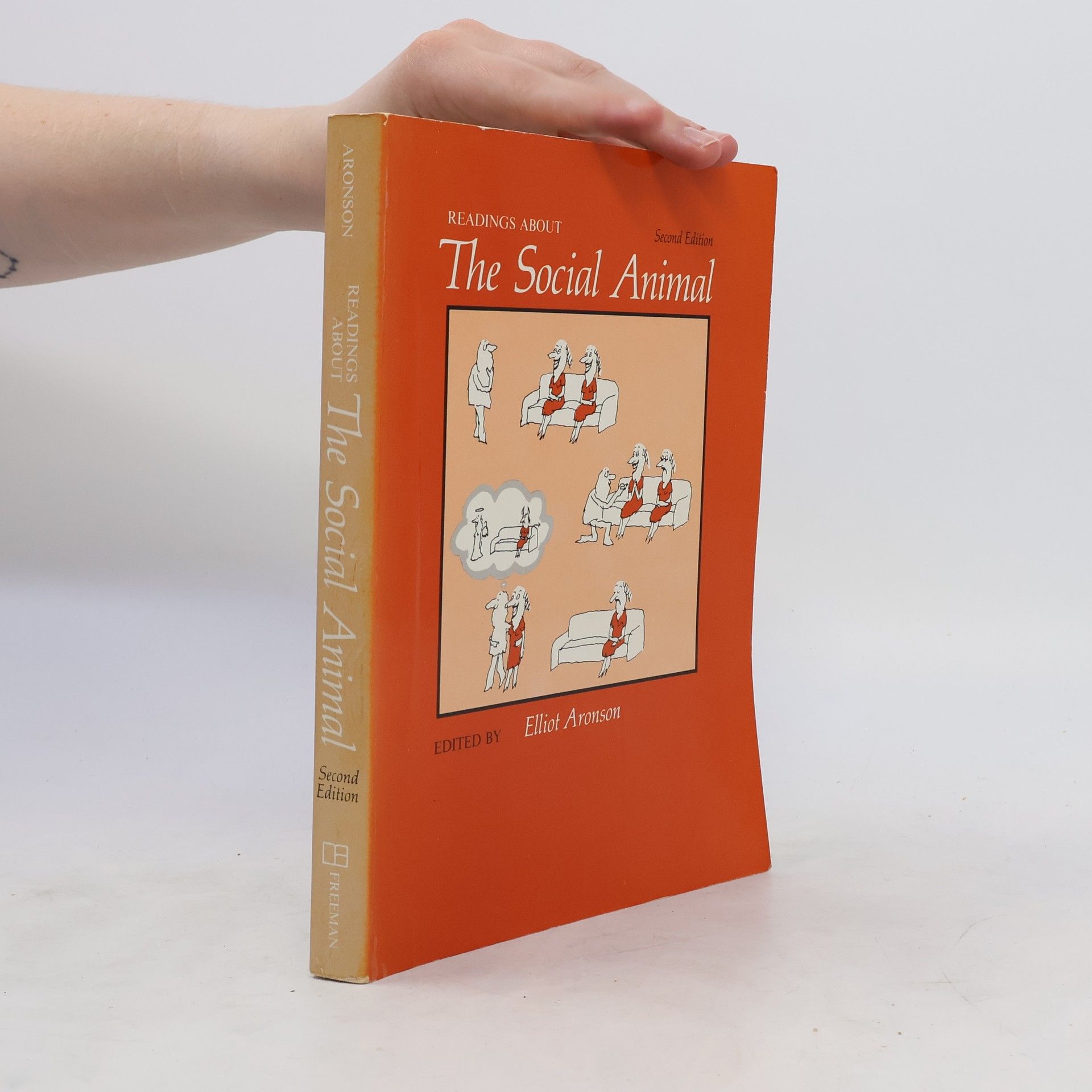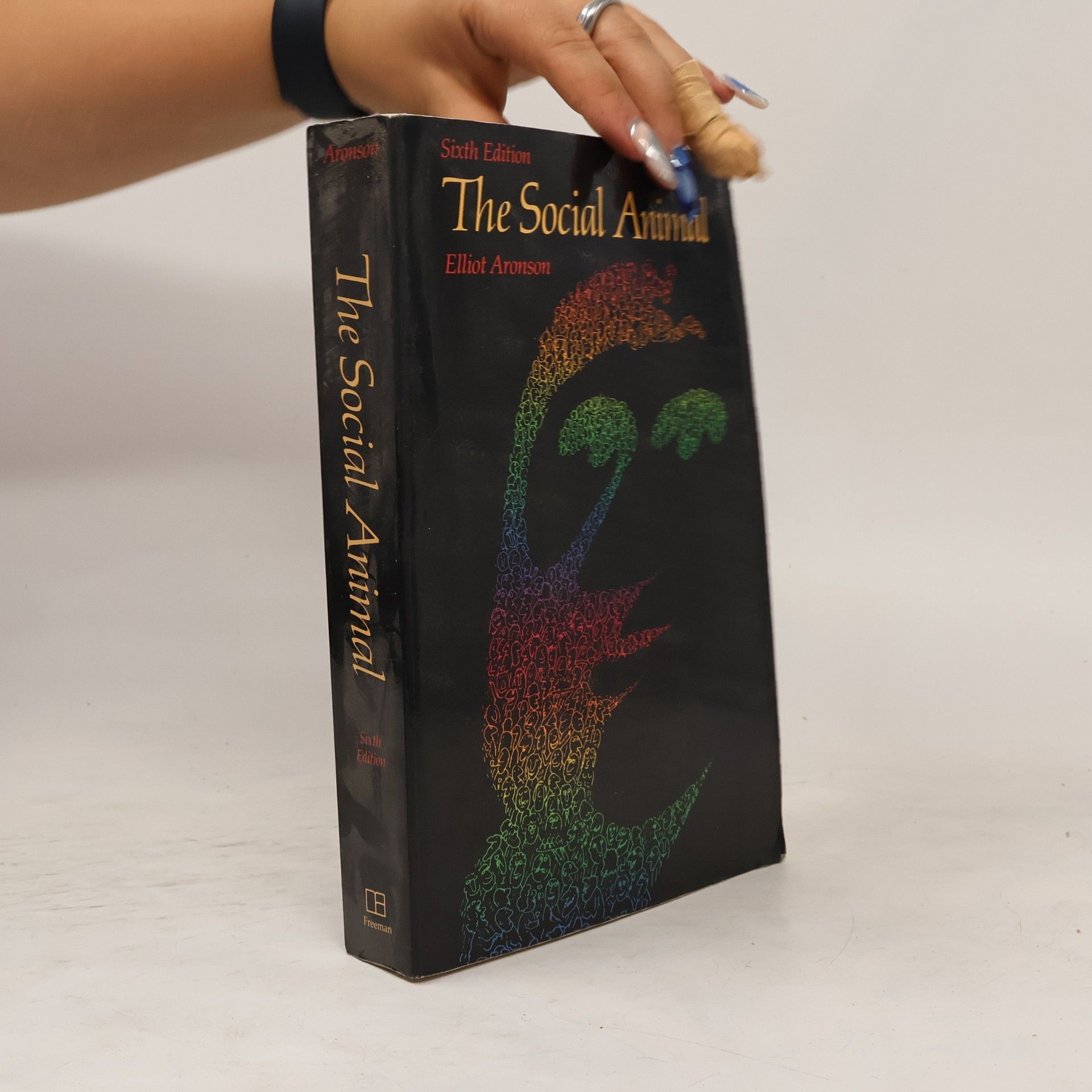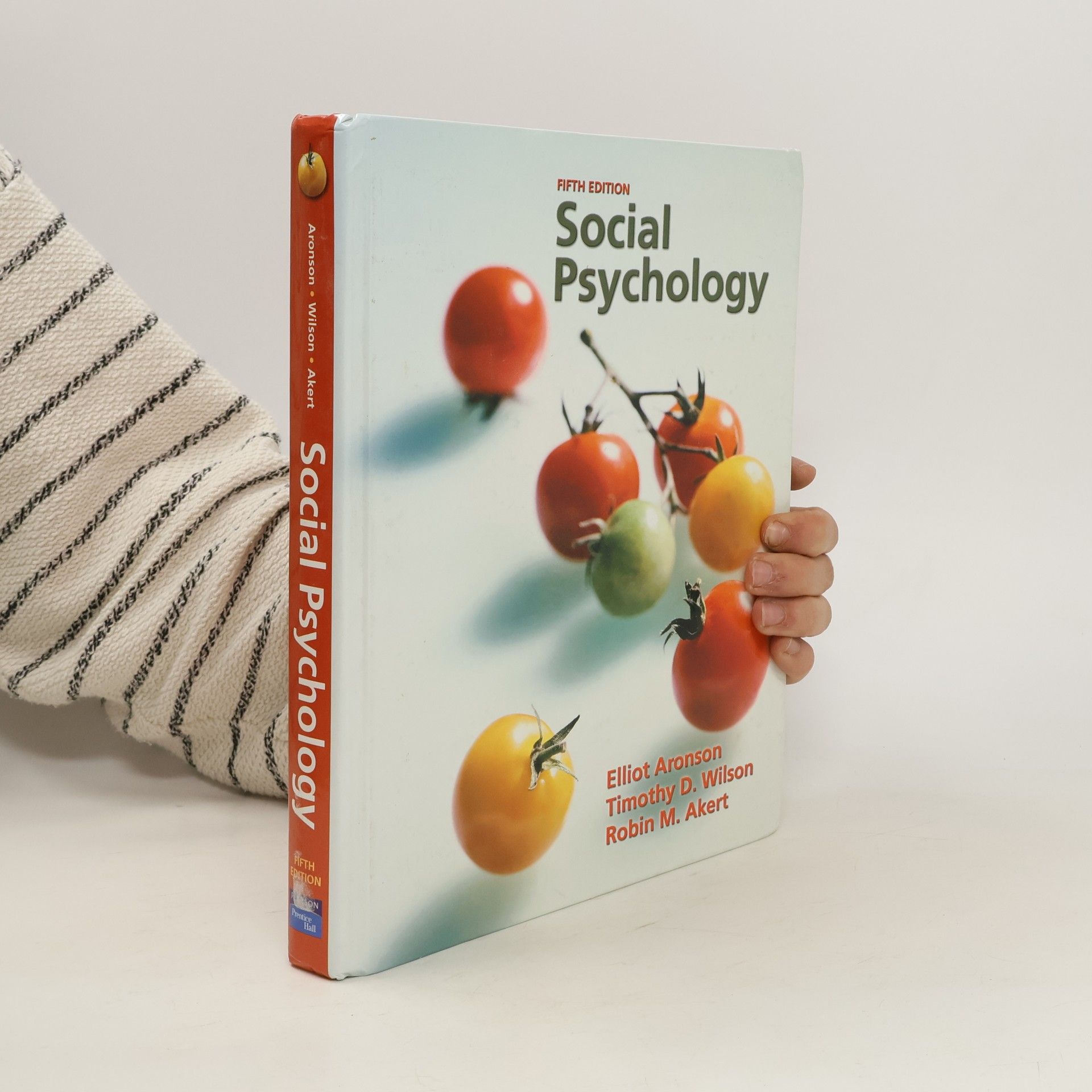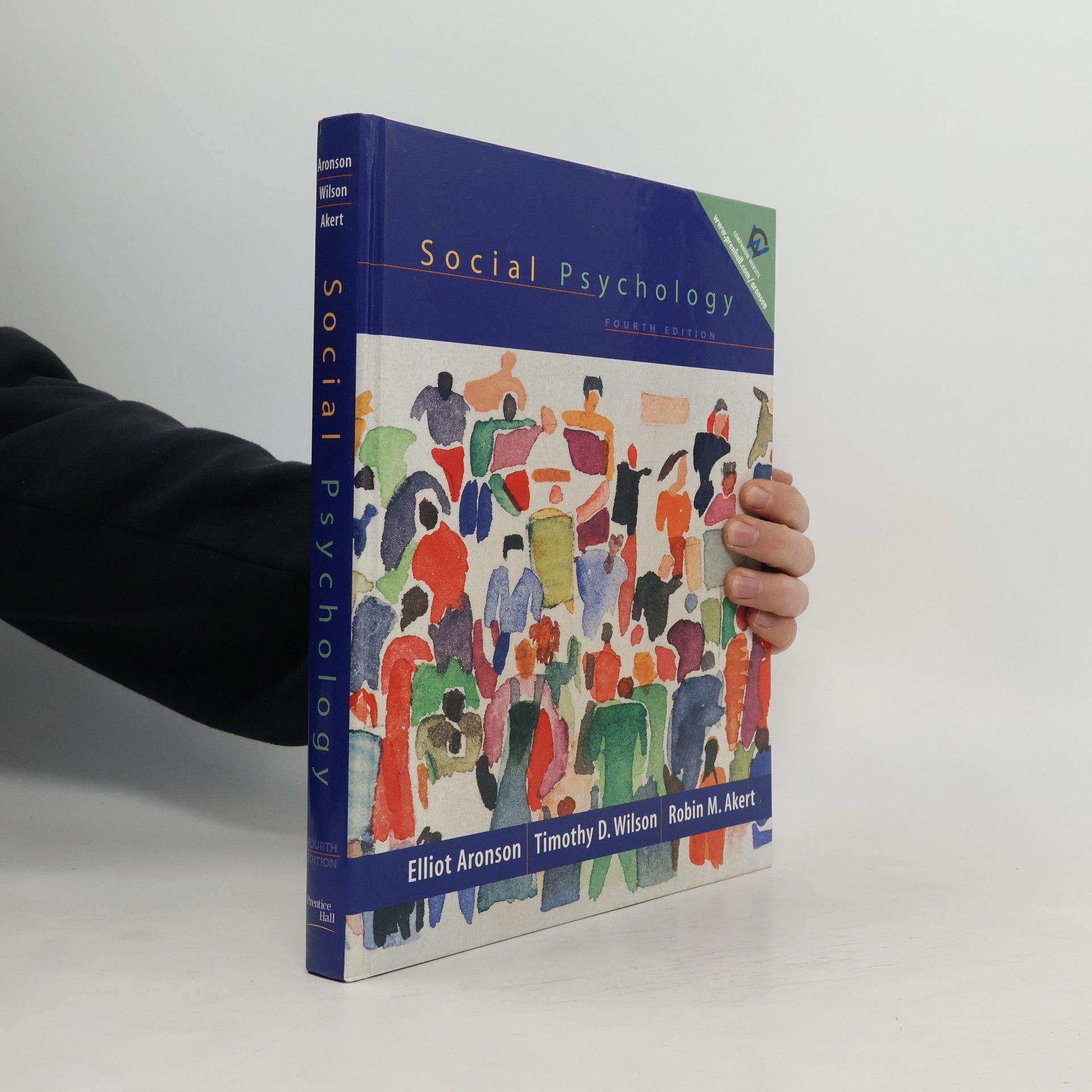This book, written by distinguished authors, presents a detailed, rigorous and scientific approach to social psychology aimed at students and faculty alike.
Elliot Aronson Livres
Elliot Aronson est un psychologue éminent dont le travail explore en profondeur le comportement humain. Il est réputé pour ses études pionnières sur la dissonance cognitive et la technique de la classe puzzle, qui ont remodelé notre compréhension de la psychologie sociale. L'écriture d'Aronson se caractérise par sa clarté et sa perspicacité, rendant les théories complexes accessibles à un large public. Ses contributions tout au long de sa vie ont influencé des générations de psychologues, son impact étant évident dans ses manuels complets et ses recherches.







Winner of the American Psychological Association's National Media Award, this book is an introduction to modern social psychology. The Sixth Edition retains the text's coverage of classic research while including: a new chapter on social cognition; a more thorough discussion of intimate relations.
Mistakes Were Made (but Not by Me)
- 400pages
- 14 heures de lecture
"This edition has a new preface and conclusion, as well as updated research and examples"--
Shares findings from research on the effectiveness of various persuasive messages, provides an overview of what social psychologists and other investigators have learned about how people are persuaded, analyzes common propaganda tactics, and explains what people can do to limit the effects of propaganda in their lives
Exploring the most important ideas in social psychology, this collection of classic and contemporary readings includes accounts of specific experimental findings as well as more general articles summarizing studies on such topics as attraction and aggression. In this edition, the most significant and provocative articles of earlier editions have been retained, including such classics as Stanley Milgram on obedience and Solomon Asch on conformity. Organized to illustrate the major themes of Elliot Aronson's highly praised book, The Social Animal, this acclaimed collection of articles can readily be adapted for use with any introductory text, or even in lieu of a text.
Social Psychology - Fourth Edition
- 677pages
- 24 heures de lecture
Intended for an undergraduate introductory level course in social psychology, this text uses a story-telling approach to convey the science of social psychology. Its aim is to help students understand the whole context of the field - how theories inspire research, why research is performed as it is, and how further research triggers new avenues of study - and how all of this impacts their everyday lives. It incorporating real-life vignettes and mini stories within every chapter that include detailed descriptions of classic and modern experiments, and describe an example of a real-life phenomenon.
„Przypadek to nie wszystko. Moje życie psychologa społecznego” Elliota Aronsona, uznawanego za jednego z najważniejszych uczonych XX wieku w dziedzinie nauk społecznych, to pełna pasji opowieść o jego życiu i czasach, w których żył. Autor, obdarzony otwartością, dowcipem i wyjątkowym zmysłem obserwacyjnym, przedstawia wydarzenia takie jak Wielki Kryzys, walka o zniesienie segregacji rasowej czy ruchy hipisowskie, w które aktywnie się angażował, niejednokrotnie wpływając na ich bieg. Aronson opisuje te epizody z perspektywy zarówno uczestnika, jak i biegłego analityka, ukazując złożoność procesów społecznych. W książce nie brakuje również refleksji na temat postaci, które ukształtowały współczesną psychologię społeczną, takich jak Abraham Maslow, Jerome Bruner, David McClelland i Leon Festinger. Autor nie boi się ujawniać swoich sympatii i antypatii, co dodaje narracji autentyczności. Barwny i żywy język sprawia, że lektura jest wciągająca, czyniąc tę książkę znakomitym wyborem nie tylko dla pasjonatów psychologii, ale także dla każdego, kto pragnie lepiej zrozumieć współczesny świat.
WYBITNA KSIĄŻKA BESTSELLEROWEGO AUTORA I GENIALNEGO NAUKOWCA ELLIOTA ARONSONA. „Tavris i Aronson połączyli swoje umiejętności, aby stworzyć wspaniały wzorzec przenikliwości społecznej i naukowego zaangażowania. Nie popełnij błędu, musisz przeczytać tę książkę” – Robert B. Cialdini. Dlaczego ludzie uchylają się od odpowiedzialności, gdy wszystko się wali? Jakie mechanizmy prowadzą do niekończących się kłótni małżeńskich? W tej niezwykle wnikliwej książce psychologowie Carol Tavris i Elliot Aronson badają samousprawiedliwianie. Kiedy popełniamy błąd, musimy złagodzić dysonans poznawczy, co prowadzi do tworzenia fikcji, które uwalniają nas od odpowiedzialności. Autorzy przedstawiają fascynujące wyjaśnienie zjawiska samooszukiwania, jego mechanizmów, skutków oraz sposobów na uwolnienie się od niego. „To urocza, zachwycająca książka. Tavris i Aronson wyjaśniają, jak wszyscy utwierdzamy się w przekonaniu, że mamy rację, mimo dowodów na przeciwną” – Daniel Gilbert. „Książka ta nie zmieni nas w anioły, ale jest doskonałym przewodnikiem po diabelskich sztuczkach umysłu” – David Callahan. Elliot Aronson podkreśla, że książka ta odzwierciedla jego poczucie domknięcia kręgu życia i hołd dla mentora, Leonarda Festingera.



